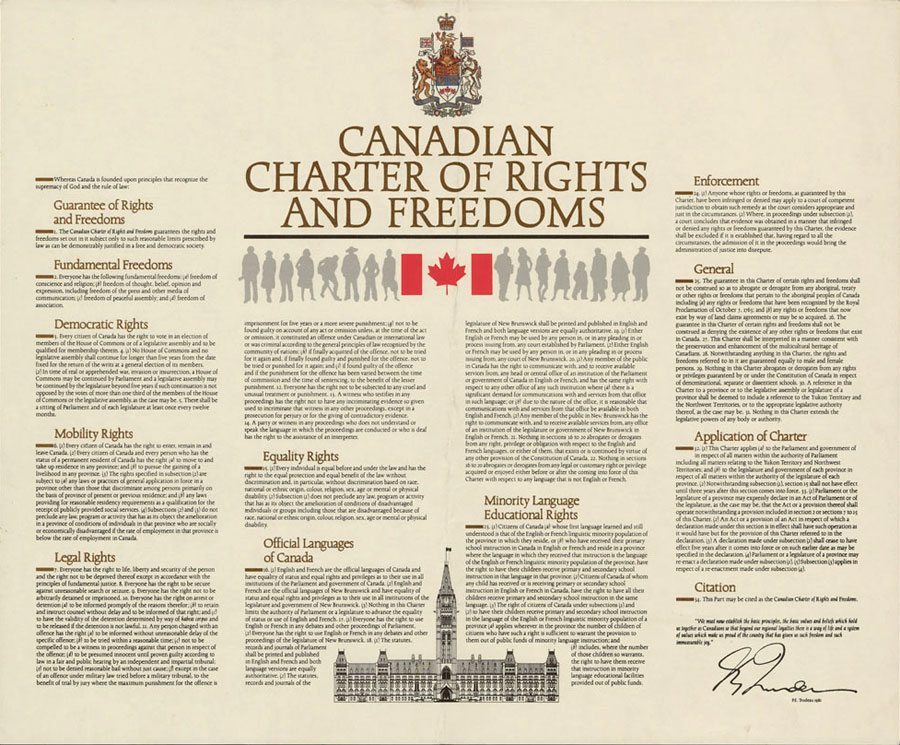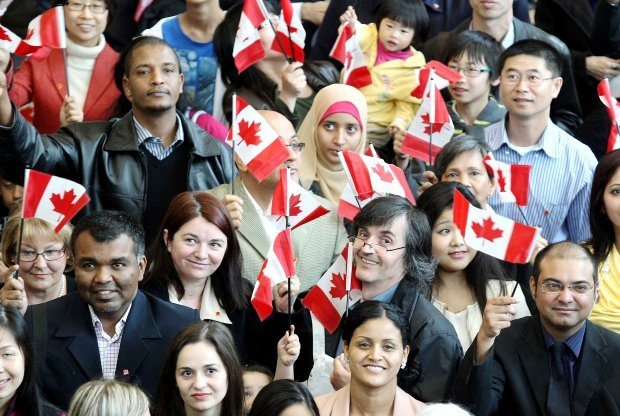10 Facts to Consider Before you Immigrate to Canada
Moving to Canada might be a crucial decision of your life, and you expect to make your turning point in life in Canada. But before you do so there are some things that you should know and be prepared for as it might not be the same as your country in all aspects. You might be accustomed to things in your country, but ‘While in Rome, Do as the Romans’. Here are the top 10 facts to know before immigrating to Canada.
10. Rights of Canadian Citizens and Residents

Every individual in Canada has his rights and duties, and before you land in Canada, it is necessary to know your obligations and the importance of the Canadian Charter of Rights and Freedoms. The charter is, as a rule, to live in Canada. It is a part of the Constitution and knowledge of the clauses will help you use it in times of need. All the human rights and freedom rights that have been granted to the people of Canada is well described in this charter. It is necessary to be knowledgeable about the laws and abides by it.
9. Taxes
Canada has a decentralized taxation system, and there is no central charge involved. You will have to get acquainted with the charge in your proposed location in Canada. There are also multi-level taxations implied. The taxes have to be filed both with the provincial government and also the federal system. You will have to use a Canadian tax calculator that will help you in understanding the amount of tax that you will have to pay. The Canadian government has also introduced one-year special tax plan for newcomers for up to one year from entry. The gross and net income will have to be considered before approving to a job. There are also special tax refund benefits.
You should also be aware that the sales taxes are added above the print price in most cases. The sales tax varied immensely based on the province.
8. Driving License

If you have to drive a car in Canada, you will, of course, need a driving license. The driving licenses are issued by the provincial or territorial governments. Some provinces allow the newcomer to use the home country driving license for a short time from your arrival. You can get more information regarding this by checking with the provincial government. You can also use an International Driving Permit (IDP) attained from your home country. The rules to gain a driving license in Canada also differs between provinces even though most of them have a written prelim exam, and you can prepare with the help of driving classes. There are also agreements between some provinces and countries which allow the usage of their driving license in that area.
7. Universal Healthcare System
The most adorable thing about Canadian health care system is that it is managed through the taxes collected. This provision is made available through a health card for health insurance. This applies to the public health services, and the insurance plan is different for different provinces. Emergency services are free regardless of whether you possess a health card or not. The free medical facilities are for basic ones, and you can go for extra health insurance if required. Some visas give access to health card while sometimes you may not be entitled to get one on arrival. There are private insurance options for such candidates.
6. Smoking
When you land in Canada, you will love the fresh air here. One of the reasons can be the strict rules that ban smoking in public places, shops, restaurants, hospital, offices, etc. It is also not allowed to smoke in a shared room or apartment which in any ways may cause difficulty to the other inhabitants. It is also illegal to smoke in front of a minor. You can smoke in your home, vehicle or take to the vast outdoors. The smoking restrictions have been imposed by the federal government and thus remains the same for all provinces.
5. Living expenses

The cost of living in Canada is cheaper than the United States and Western Europe. The internal differences between the rural and urban areas are very high within Canada. The cost of living, when taking into consideration all factors like food, clothing, rental, transport and other necessities, the urban areas like Vancouver, Toronto and Montreal have higher values when compared to inside areas like Saguenay, Trois-Rivieres, and Sherbrooke. People mostly prefer to stay in the urban areas, and it is affordable as the government supports the health care and education expenses.
4. Looking for Jobs
One of the major mistakes done by immigrants to land in Canada and then look for jobs. Employments in Canada are delivered based on the CRS score. You can ideally apply for jobs before landing in Canada and have your score checked so that you can increase you score with extra courses before moving in. This will increase your chances of finding a suitable job.
It also holds that Canada has a good load of skilled and educated citizens, so finding a job in Canada can be a difficult process. So be prepared with enough funds to keep you lasting till you find your dream job. Sometimes you may not be presented with the job that you came for as soon as you come in. But if you have to sustain yourself till you find the perfect job, be ready to take up any jobs. Make you resume to reflect the Canadian style.
3. Tipping
You might be coming from a place where the waiters and other people in the service sector are paid a good salary, and you do not have to give them tips. But in Canada, it is mandatory to give tips to people in the service and hospitality sector. They live on very low salaries and therefore they expect tips in return for their hospitality. This is usually 15% or more based on the level of service.
In some places, the waiters will have to tip the kitchen staff too for the orders. It is essential to understand this emotion and act accordingly to prevent hurting their feelings.
2. Multiculturalism

Canada is a place where people from different areas come together and work together. You can, therefore, stay in your culture and respect the cultures and beliefs of other people while in Canada. Keeping an open mind and the ability to adjust to different cultures is very essential.
1. Weather
Canada experiences both extreme climates with short seasons of transition. It is freezing in the winters and temperature can go right below to -25-degree Celsius. It is therefore advised to some prepared to fight the cold winter or the hot summer with proper clothing and mindset.
[/column]

